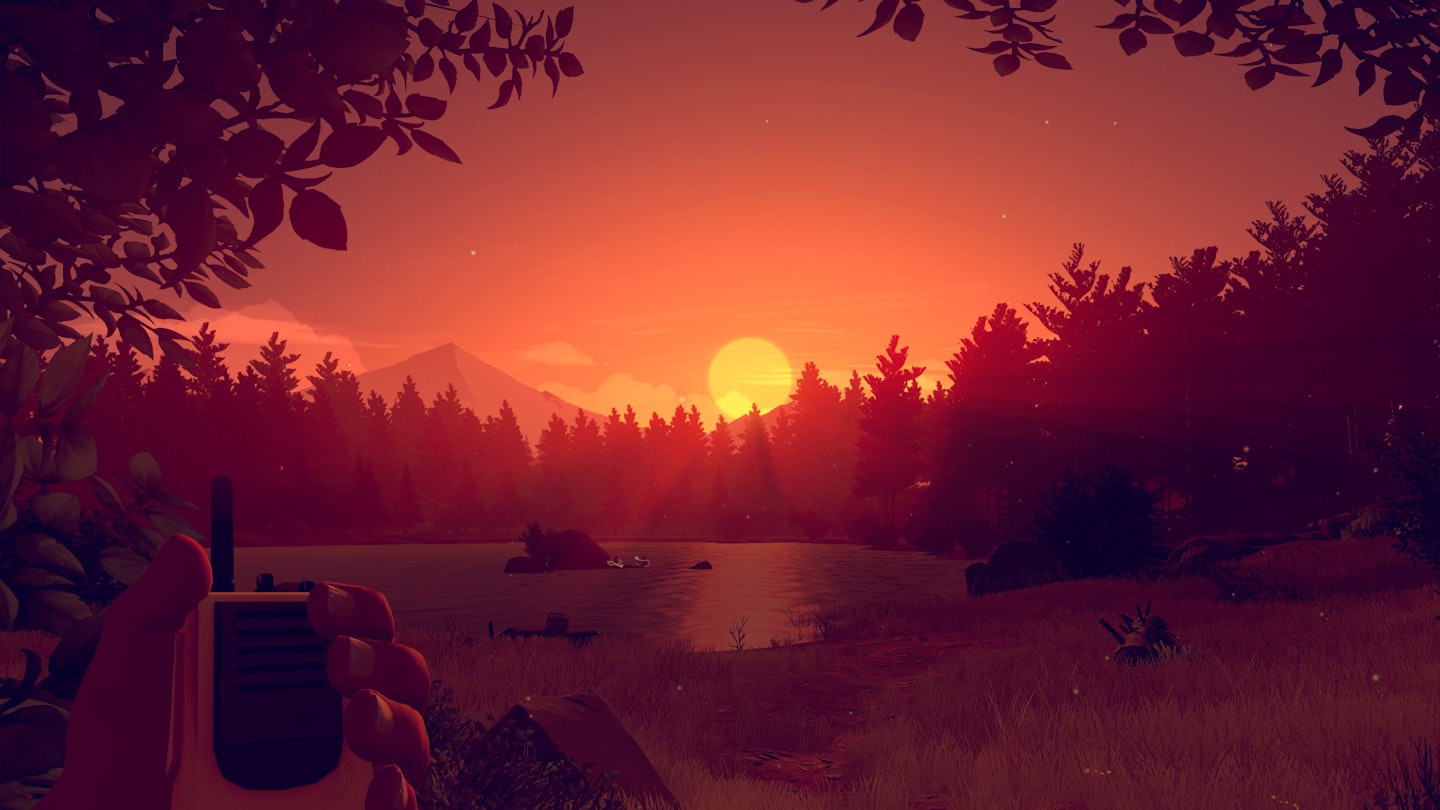Firewatch, the debut release from small indie studio Campo Santo, is a game about people; about their relationships, life decisions, and the things in life that they run away from in a hope that they’ll just disappear. Set in the lush, seemingly endless rocky woodland of America’s Shoshone National Forest, you are Henry. Henry is everything in Firewatch – its voice and soul.
Henry has come to the Shoshone to escape – to say exactly what from would be to spoil Firewatch’s magnificently well-crafted introduction, in which you choose key decisions in Henry’s life all the way up the poignant summer of 1989, when Henry took a job as a fire lookout at the park. His job is a solitary one; you don’t meet anyone else, or even see another human face during your time with Firewatch. You may never see Henry’s face but his mannerisms give him real depth, from an excellent voice acting performance from Mad Men’s Rich Sommer, to the wonderful childlike way that his chunky limbs are animated, with a thump and a clump as you trek about the woodland.
Instead, you’re kept company by Delilah, your fellow lookout and boss at the park. Your only method of contact with her is with a brilliantly implemented walky-talky, which lets you choose dialogue options – occasionally dramatic, sometimes emotional, frequently hilarious – that are reactive to whatever it is you’re doing at any given time. The game relies solely on linear exploration and this conversational relationship with Delilah. There are no puzzles and no combat – your only hurdles are minor tasks like finding a backpack or locating the source of an odd noise in the woods, usually upon her instruction. You’re almost always in contact with her, from Day 1 through to Day 60-odd, and it is a relationship that flourishes naturally as you play.

Wandering around, talking to Delilah, the park itself feels truly vast - much bigger than the relatively confined space that it actually is - thanks to smart design and an expert use of space, which creates a sense of genuine expanse, as if you really are wandering the forests like a ranger. Designed in part by artist Olly Moss, the game is achingly pretty, with vivid colours bathing the trees, rocks and rivers in red sunsets, crisp early mornings and genuinely eerie nights. The textures fade as they stretch out toward the horizon, and there’s a depth that highlights nature’s scope.
It’s a setting that feels as mysterious as the game’s story, and while Firewatch’s big intrigue is a genuine page-turner that pushes you through its relatively short runtime, the journey is much, much more enjoyable than the final destination, with an ending that feels far too abrupt. It feels like the game is making a wider point, but too many of the game’s plot plots feel out of place, don’t quite add up, and it feels like the game suffers for such a rushed conclusion. Regardless, that journey is still worth taking. Henry and Delilah are two of the most believable, well-crafted game characters we’ve ever met (or in Delilah’s case, not met), and their relationship is a truly memorable one.
